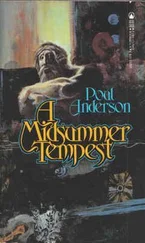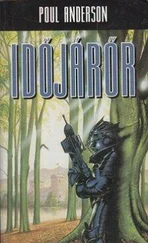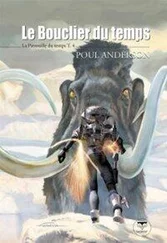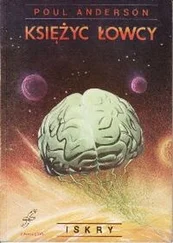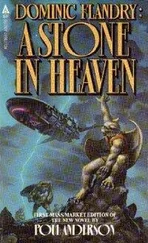“But we can’t. Not ever. The light would take a hundred years, and I… we would all be dead — No!”
He soothed her, a most pleasant proceeding which became still more pleasant as the night went on. And they were on his yacht, which had borne his love from the first day he took the tiller, in a calm sea, with wine and small sandwiches, and she even asked him to play his guitar and sing. But somehow it was not the episode he had awaited. He kept thinking of this or that preparation, what had he overlooked, what could he expect to find at the black sun; perhaps he was indeed under the subtle tooth of age, or of maturity if you wanted a euphemism, or perhaps the Southern Cross burned disturbingly bright overhead.
Winter lay among the Outer Hebrides. Day was a sullen glimmer between two darknesses, often smothered in snow. When it did not fling itself upon the rocks and burst in freezing spume, the North Atlantic rolled in heavy and gnawing. There was no real horizon, leaden waves met leaden sky and misty leaden light hid the seam. “Here there is neither land nor water nor air, but a kind of mixture of them,” wrote Pytheas.
The island was small. Once it had held a few fishermen, whose wives kept a sheep or two, but that was long ago. Now only one house remained, a stone cottage built centuries back and little changed. Down at the landing was a modern shelter for a sailboat, a family submarine, and a battered aircar; but it was of gray plastic and fitted into the landscape like another boulder.
David Ryerson put down his own hired vehicle there, signaled the door to open, and rolled through. He had not been on Skula for half a decade: it touched him, in a way, how his hands remembered all the motions of steering into this place and how the dank interior was unaltered. As for his father — He bit back an inward fluttering, helped his bride from the car, and spread his cloak around them both as they stepped into the wind.
It howled in from the Pole, striking them so they reeled and Tamara’s black locks broke free like torn banners. Ryerson thought he could almost hear the wind toning in the rock underfoot. Surely the blows of the sea did, crash after crash through a bitter drift of flung scud. For a moment’s primitive terror, he thought he heard his father’s God, whom he had denied, roar in the deep. He fought his way to the cottage and laid numbed fingers on the anachronism of a corroded bronze knocker.
Magnus Ryerson opened the door and waved them in. “I’d not expected you yet,” he said, which was as close as he would ever come to an apology. When he shut out the wind, there was a quietness which gaped.
This main room, brick-floored, whitewashed, irregular and solid, centered about a fireplace where peat burned low and blue. The chief concessions to the century were a radi-globe and a stunning close-up photograph of the Sirian binary. One did not count the pilot’s manuals or the stones and skins and gods brought from beyond the sky; after all, any old sea captain would have kept his Bowditch and his souvenirs. The walls were lined with books as well as microspools. Most of the full-size volumes were antique, for little was printed in English these days.
Magnus Ryerson stood leaning on a cane of no Terrestrial wood. He was a huge man, two meters tall in his youth and not greatly stooped now, with breadth and thickness to match. His nose jutted craggily from a leather skin, shoulder-length white hair, breast-length white beard. Under tangled brows, the eyes were small and frost-blue. He wore the archaic local dress, a knitted sweater and canvas trousers. It came as a shock to realize after several minutes that his right hand was artificial.
“Well,” he rumbled at last, in fluent Interhuman, “so this is the bride. Tamara Sumito Ryerson, eh? Welcome, girl.” There was no great warmth in his tone.
She bent her face to folded hands. “I greet you most humbly, honorable father.” She was Australian, a typical high-class common of that province, fine-boned, bronze-hued, with blue-black hair and oblique brown eyes; but her beauty was typical nowhere. She had dressed with becoming modesty in a long white gown and a hooded cloak, no ornaments save a wedding band with the Ryerson monogram on it.
Magnus looked away from her, to his son. “Professor’s daughter, did you say?” he murmured in English.
“Professor of symbolics,” said David. He made his answer a defiance by casting it in the Interhuman which his wife understood. “We… Tamara and I… met at his home. I needed a background in symbolics to understand my own specialty and—”
“You explain too much,” said Magnus dryly. “Sit.”
He lowered himself into a chair. After a moment, David followed. The son was just turned twenty years old, a slender boy of average height with light complexion, thin sharp features, yellow hair, and his father’s blue eyes. He wore the tunic of a science graduate, with insignia of gravitics, selfconsciously, but not so used to it that he would change for an ordinary civilian blouse.
Tamara made her way into the kitchen and began preparing tea. Magnus looked after her. “Well-trained, anyhow,” he grunted in English. “So I suppose her family is at least heathen, and not any of these latter-day atheists. That’s somewhat.”
David felt the island years, alone with his widower father, return to roost heavy upon him. He stifled an anger and said, also in English: “I couldn’t have made any better match. Even from some swinish practical standpoint. Not without marrying into a technic family, and — Would you want me to do that? I’ll gain technic rank on my own merits!”
“If you stay on Earth,” said Magnus. “Who notices a colonial?”
“Who notices an Earthling, among ten billion others?” snapped David. “On a new planet… on Rama… a man can be himself. These stupid hereditary distinctions won’t even matter.”
“There is room enough right here,” said Magnus. “As a boy you never used to complain Skula was crowded. On the contrary!”
“And I would settle down with some illiterate beefy-faced good Christian fishwife you picked for me and breed more servants for the Protectorate, all my life!”
The words had come out before David thought. Now, in a kind of dismay, he waited for his father’s reaction. This man had ordered him out into a winter gale, or supperless to bed, for fifteen years out of twenty. In theory the grown son was free of him, free of everyone save contractual overlords and whatever general had most recently seized the title of Protector. In practice it was not so easy. David knew with a chill that he would never have decided to emigrate without Tamara’s unarrogant and unbendable will to stiffen his. He would probably never even have married her, without more than her father’s consent, against the wish of his own — David gripped the worn arms of his chair.
Magnus sighed. He felt about after a pipe and tobacco pouch. “I would have preferred you to maintain residence on Earth,” he said with a somehow shocking gentleness. “By the time the quarantine on Washington 5584 has been lifted, I’ll be dead.”
David locked his mouth. You hoary old fraud, he thought, if you expect to hook me that way — “ It’s not as if you would be penned on one island all your days,” said Magnus. “Why did I spend all I had saved, to put my sons through the Academy? So they could be spacemen, as I was and my father and grandfather before me. Earth isn’t a prison. The Earthman can go as far as the farthest ships have reached. It’s the colonies are the hole. Once you go there to live, you never come back here.”
“Is there so much to come back to?” said David. Then, after a minute, trying clumsily for reconciliation: “And father, I’m the last. Space ate them all. Radiation killed Tom, a meteor got Ned, Eric made a falling star all by himself, Ian just never returned from wherever it was. Don’t you want to preserve our blood in me, at least?”
Читать дальше
Конец ознакомительного отрывка
Купить книгу


